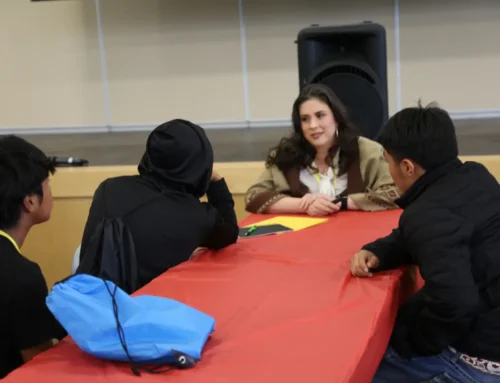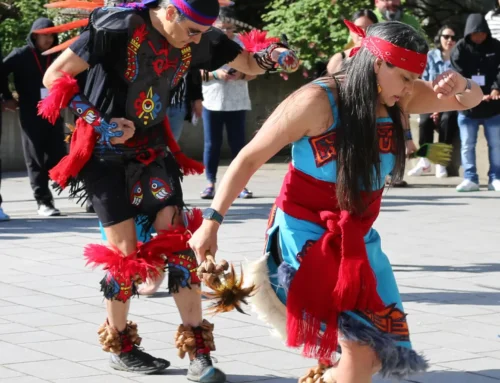As I think about all the amazing young people in my life, around our region, and in the world, I have become increasingly concerned about their future and long-term survival on this planet. Most days I hear evidence in the news about the negative spiral that the greenhouse effect is creating for our climate with little expectation of improvement or reversal. However, I am increasingly excited to learn about ClimeTime, which is a new initiative that is refreshing and hopeful, it brings to mind the edict from Schoolhouse Rock that “Knowledge is power!”
 What is ClimeTime you ask? It is a progressive initiative that was developed in an effort to bring climate science to the next generation and equip them with the power to devise the solutions and practices that will make sustained human life on this planet possible. Our Governor, Legislature, and the Office of the Superintendent of Public Instruction (OSPI) have teamed up to fund Washington State’s Educational Service Districts (ESDs), and Community Based Organizations (CBOs) to teach teachers about climate science and the Next Generation Science Standards through a legislative provision that has come to be known as ClimeTime. Though I understand that there are many aspects of this project at the NWESD, I was excited to step into a workshop for preschool and kindergarten teachers who were hard at work developing lessons, comparing ideas, and reviewing student work to gauge their understanding about weather and climate.
What is ClimeTime you ask? It is a progressive initiative that was developed in an effort to bring climate science to the next generation and equip them with the power to devise the solutions and practices that will make sustained human life on this planet possible. Our Governor, Legislature, and the Office of the Superintendent of Public Instruction (OSPI) have teamed up to fund Washington State’s Educational Service Districts (ESDs), and Community Based Organizations (CBOs) to teach teachers about climate science and the Next Generation Science Standards through a legislative provision that has come to be known as ClimeTime. Though I understand that there are many aspects of this project at the NWESD, I was excited to step into a workshop for preschool and kindergarten teachers who were hard at work developing lessons, comparing ideas, and reviewing student work to gauge their understanding about weather and climate.
Looking around the room, I saw rain gauges magnifying glasses, weather stations, little plastic clouds for simulating rain, books about weather, plates with dirt, moss, rocks, and mulch, and many other exciting teaching tools. I peeked into some students’ notebooks and saw that they were gathering data about rainfall over the days, weeks, and months of the school year to look for patterns and generate questions.
Not knowing what I had stepped into, I asked the facilitator, Jodi Crimmins (follow her on Twitter @JodiCrimmins), what all of this was about. Jodi explained that she is the Sustainability and Garden TOSA at the Oak Harbor School District and was partnering with the NWESD to facilitate discussions and planning about exploring climate science with our youngest learners. She explained that she teamed up with the NWESD’s Early Learning Director, Sarah Southard and a team of three preschool and three kindergarten teachers to take a close look at the Next Generation Science Standards for Kindergarten. This team worked on designing learning environments and experiences that engage 3-6 year-olds in climate science. They then tried their ideas out, refined them, expanded them, and came back together to share what they had learned. They collaborate on their lessons, resource and book lists, and discoveries at this workshop with other Pre-K and Kindergarten teachers. They used it as a starting point for developing their own ideas and making adjustments based on their students’ strengths, interests, and needs.
Seeing all of these teachers engaged in their own learning and exploration made me so excited to think about what their young students could look forward to and what their new understandings and discoveries would mean for our planet as they continue to learn, grow, and build on the knowledge and power they will draw from these early experiences.




